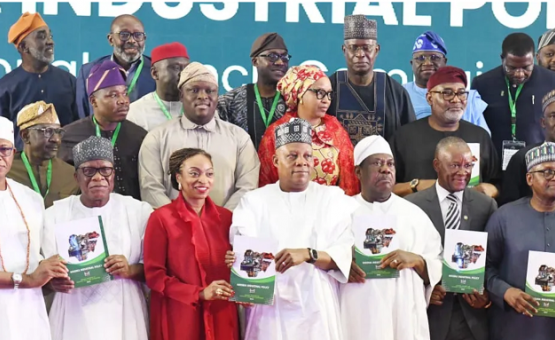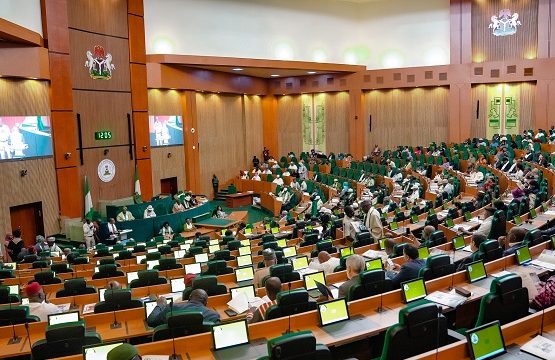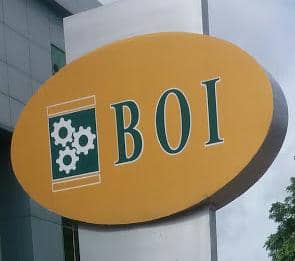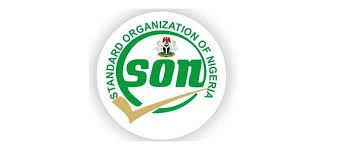By Franklin Ocheneyi
GREEN manufacturing is gradually taking shapes in Nigeria as newly built industries are being powered by natural gas and through solar energy.
Checks by Industrialtimesngr, shows that some ongoing industrial parks in Lagos, Ogun, Oyo , Aba and Rivers are running on renewable energies rather than the conventional fossil fuels like petroleum and diesel generators.
Here are the facts:
The Managing Director of Shell Nigeria Gas (SNG), Mr. Ralph Gbodo, affirmed the company has been promoting natural gas as a more reliable, cleaner and cost-effective alternative to liquid fuels for the domestic industrial customers, especially – member companies under the Manufacturers Association of Nigeria (MAN).
” We have built a distribution network of approximately 150km and currently supplying 130 industrial and commercial customers in Ogun , Abia, Oyo , Rivers, Bayelsa and Lagos States,” he said.
” For example, in Ogun Guanghou free trade zone, where we have supplied gas to 100 industrial customers, and we can immediately sees the effects of the creation of an enabling environment for manufacturing to thrives.
This is the only free trade zone with full natural gas in the country and now boast of glass, pharmaceuticals, ceramics, steel and plastic manufacturing.
” Right now, Ogun State is ranked as the third in survey of IGRs after Lagos, and Rivers State. So we can only imagine the multiplier effects of our GDP , if we can replicate it in other parts of the country.
“In Abia State, Shell Gas completed the 20km gas pipeline expansion project which connects three industrial zones in the State- the Obo Hill, Ososioma and Ariara industrial zone.
The projects have enabled the supply of pipeline gas to independent power plants (IPPs) consortium that supplies power to the Ariara market – the largest leather market in West Africa with over 37,000 shops and one million traders.
In Oyo State, we recently signed a memorandum of understanding with the government for the acceleration of domestic gas infrastructure in the state.
This is to enable the supply of cleaner and more reliable energy in the state.
This partnership is to further improve domestic gas utilisation in Nigeria and to enable local industries to increase and create employments opportunities for Nigerians.
In Bayelsa State, we have an agreement with the Nigeria Content Development and Monitoring Board (NCDMB) to provide gas infrastructure to an industrial park being championed by the Board in Polako, Bayelsa. It has an estimated employment opportunity of about 30,000.
We have actually awarded the contract for the project and we expect that by this time next year, there will be gas flow into that park,” he said.
Also, the Nigeria Export Processing Zones Authority (NEPZA), is positioning the Imoore, Amuwo-Odofin area of Lagos, for an eco-friendly industrial activities and logistics services with free trade zone status.

- Carbon emissions footprint
NEPZA said that active manufacturing activities will start on the 115,503 hectares of land without the usual emission of destructive carbon energy into the space.
” This is in line with the federal government’s policy on promoting a green environment.
Furthermore, Nigerian Breweries Plc has been at the forefront of integrating solar into the factory’s energy mix, at its Ibadan and Lagos Brewery plants.
The initiative aims to reduce the company’s dependence on diesel generators, displacing an estimated 31.4 million liters of diesel and offsetting around 84,758 tons of CO2 over the installation’s 20-year lifespan.
” He urged gas companies to sell gas to the local industries at the export price of $3.25 per cubic metre.”
Although, at the recently held COP28 in Dubai, President Bola Tinubu noted that transitioning from fossil fuels, which is Nigeria’s economic mainstay, will not be easy, but that we are aggressively pursuing the exploitation of our abundant natural gas, wind and solar resources.
” I committed Nigeria to eliminate methane and other non-CO2 greenhouse gases, highlighting our readiness to take the lead in Africa’s efforts to decarbonize the world economy,” he said.
He cites the impacts of climate change on the people and the economy :
” The rapid loss of water resources and the escalating rate of desertification are closely tied to the Sahel crisis, which is characterized by the emergence of extremist and authoritarian elements.
The startling loss of 90% of Lake Chad over the past three decades is a perfect example of this.
We seek urgent international collaboration in both financing and technology toward the total recharge and recovery of this critical body of water.
Together, with one voice and coordinated action, we can stop the desert from consuming Nigeria’s vast arable land, displacing communities, and causing food insecurity and social dislocation that often erupts into violence.
” In southern Nigeria, rising ocean levels threaten coastal areas. Throughout the nation, flooding kills hundreds of innocent civilians and decimates farmlands, towns, and villages, rendering tens of thousands of our people homeless.”
President Tinubu said that Nigeria has taken significant steps and acted decisively in enacting the Climate Change Act and committing to net-zero emissions between 2050 and 2070.
” To uphold our legally binding commitment to a cleaner world, Nigeria launched the Nigerian Carbon Market Initiative at COP28 by joining the African Carbon Market Initiative.
He also disclosed that the government has successfully mobilised tens of thousands of youths nationwide to plant 250,000 trees annually to honor a pledge to plant 25 million trees by 2030 as we build our great green wall to fight back against encroaching desert across the northern region of our nation.
” In recent weeks, we signed an agreement with a German energy firm to massively convert flared gas into high-grade natural gas exports to Europe. This is critical to reducing one of the major ways the country contributes to global greenhouse gases.
“However, we have implemented the Nigerian Energy Transition Plan (NETP) to make this shift.
This data-driven strategy targets net-zero emissions in key sectors— power, cooking, Oil & Gas, transport, and industry.
The NETP demands a $10 billion annual investment until 2060. The truth is that we need partnerships for a new green economy in Africa.
The European Union’s Global Gateway program and the US Build Back Better World initiative are potential resources we are keen to explore.”
Earlier, Francis Meshioye, the President of the Manufacturers Association of Nigeria (MAN), lamented that domestic manufacturers spend over N400 billion annually on alternatives energy.
He stressed the need for improving electricity supply to the industries by increasing the quantum of energy generation in the economy and encourage energy mix and energy efficiency within the private sector.
He urged gas companies to sell gas to the local industries at the export price of $3.25 per cubic metre.









